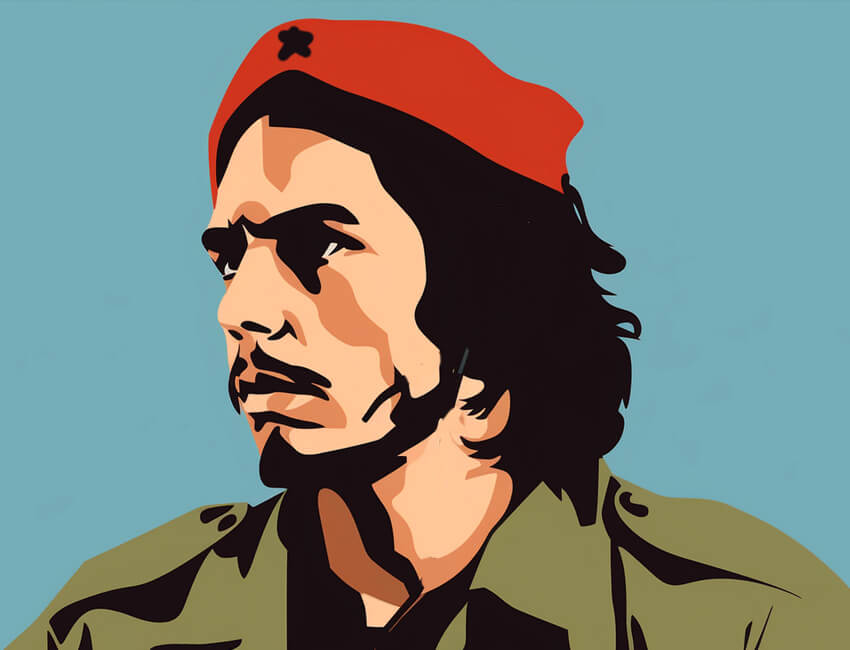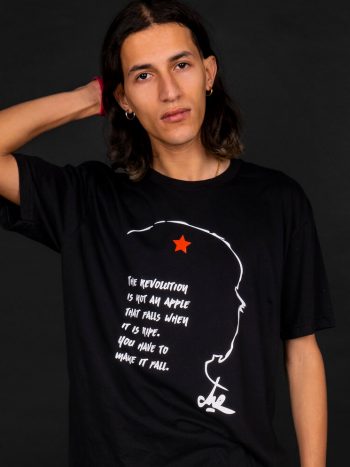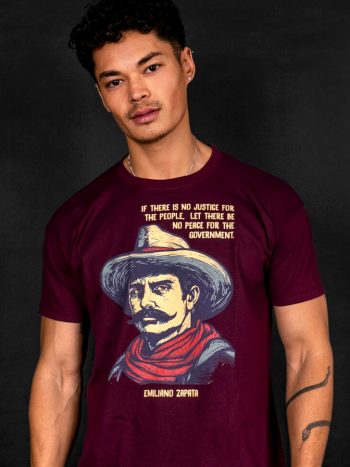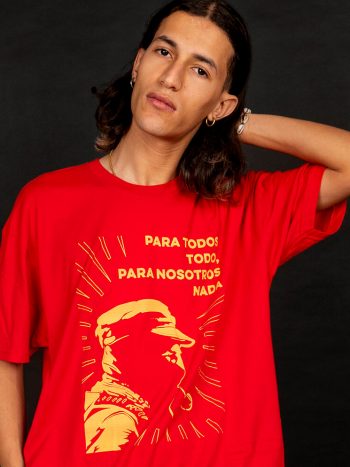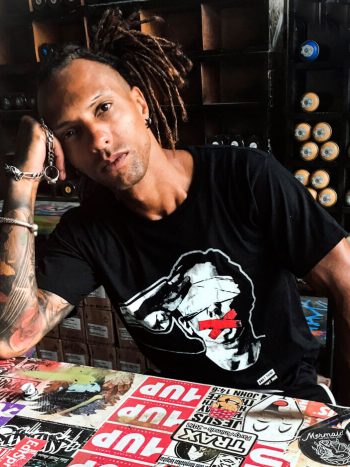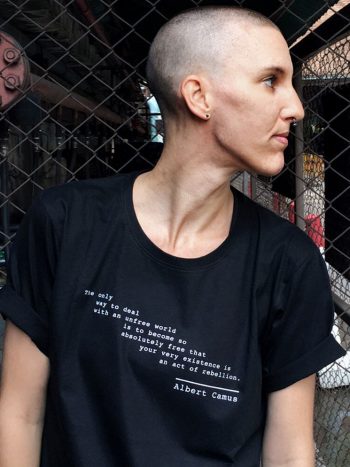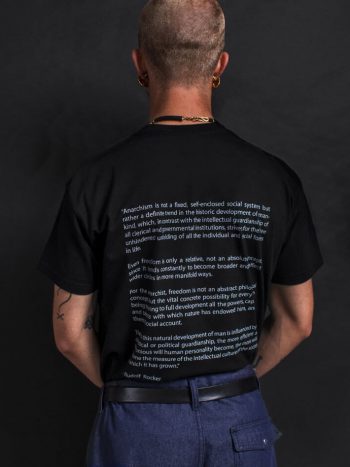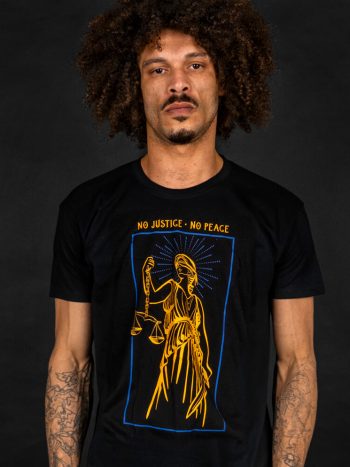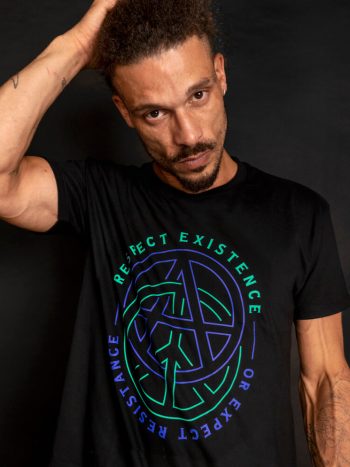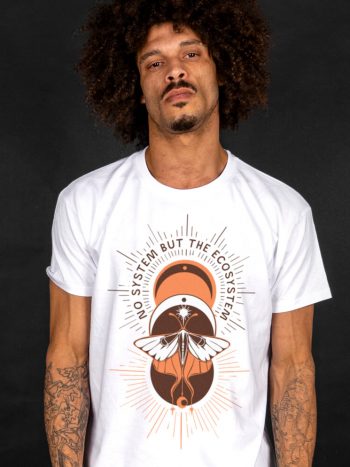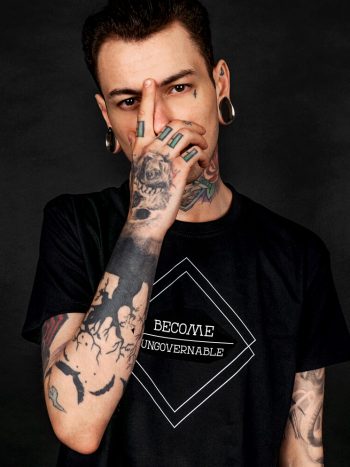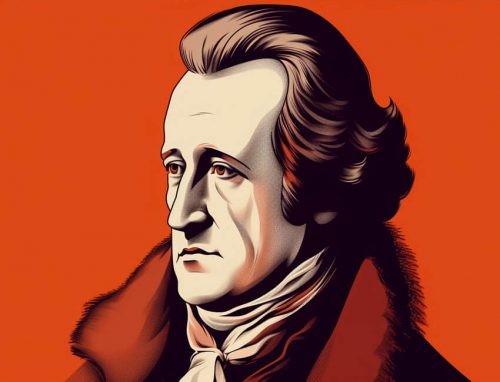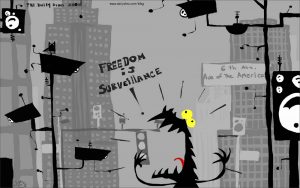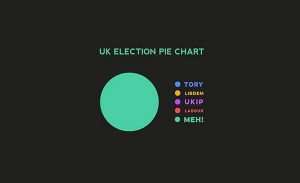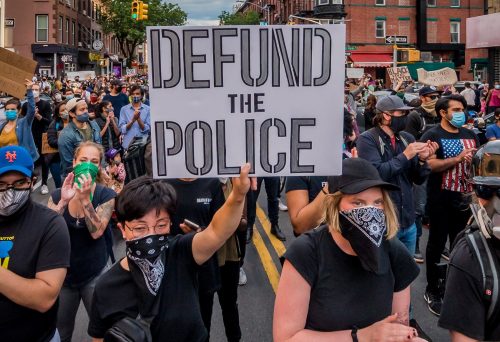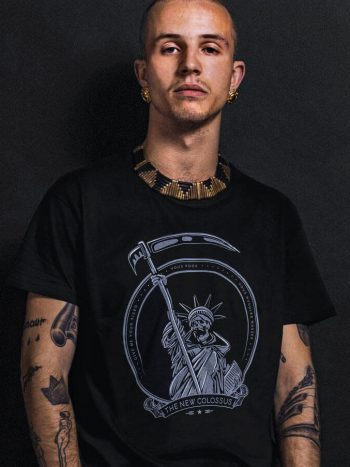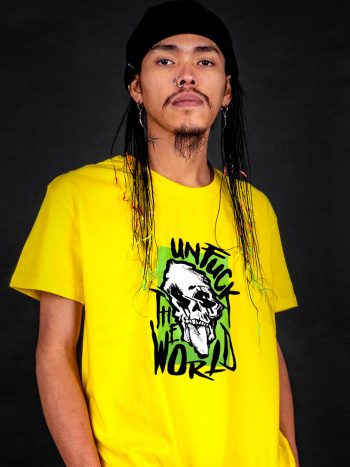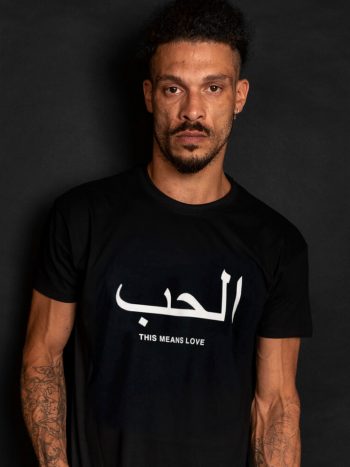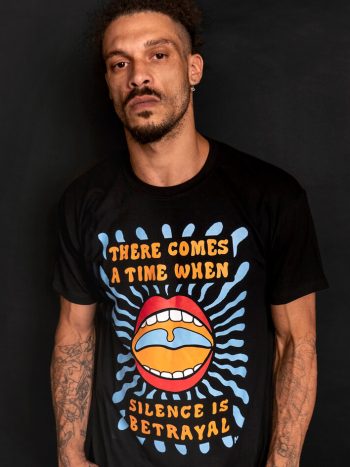-
$28Add to WishlistAdd to Wishlist
-
$28Add to WishlistAdd to Wishlist
-
$28Add to WishlistAdd to Wishlist
-
$28Add to WishlistAdd to Wishlist
-
$28Add to WishlistAdd to Wishlist
All rise.
Ladies and gentlemen of the jury, today we gather to scrutinise the life and actions of Ernesto “Che” Guevara, a highly controversial figure whose legacy continues to divide public opinion. This trial aims to examine whether Guevara is guilty of being a dictator or if he was falsely accused, shedding light on the complexities surrounding his role in history.
Ernesto “Che” Guevara, an iconic figure of the Cuban Revolution, has been the subject of much debate and scrutiny. Revered by some as a symbol of rebellion and social justice, while reviled by others as a violent revolutionary and oppressor, Guevara’s legacy continues to spark discussions about whether he was a good guy or a bad guy.
The Defendant
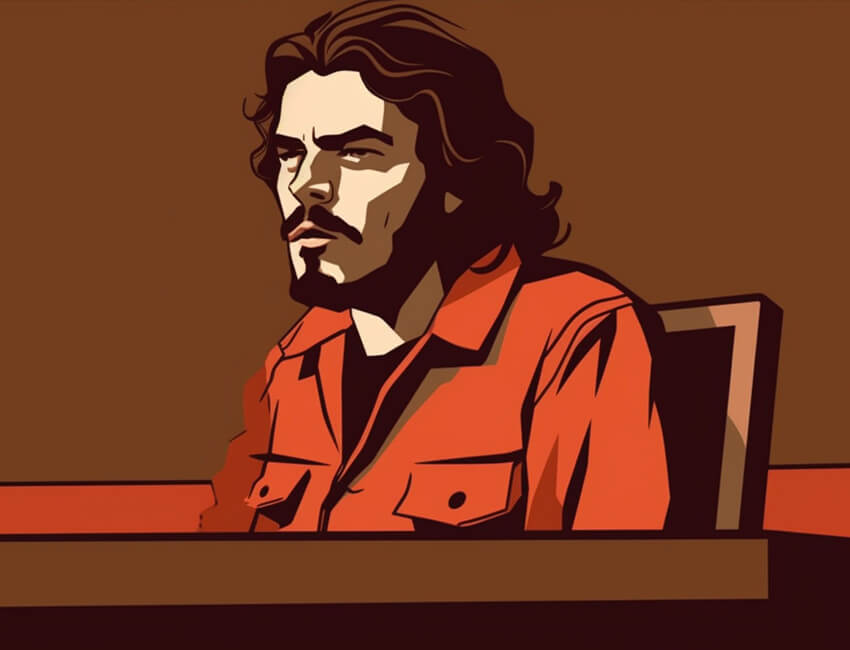
Ernesto “Che” Guevara was an Argentine Marxist revolutionary, physician, author, guerrilla leader, and diplomat. He was born on June 14, 1928, in Rosario, Argentina, and he died on October 9, 1967, in La Higuera, Bolivia. Guevara played a significant role in the Cuban Revolution alongside Fidel Castro, which ultimately led to the overthrow of the authoritarian government of Fulgencio Batista in Cuba in 1959.
Guevara became a symbol of revolutionary ideals, anti-imperialism, and leftist movements around the world. He held various positions in the Cuban government, including serving as the Minister of Industry, and he played a key role in the country’s early revolutionary policies and efforts to establish socialism.
Prosecution's Case - Accusations of Dictatorship
The prosecution’s case presents a compelling argument, contending that Che Guevara’s actions and ideology point to a dictatorial nature. They delve into the specifics of Guevara’s involvement in executions, asserting that he played a direct role in the deaths of political opponents and dissenters. The prosecution emphasizes that such acts undermine the principles of democracy and human rights, highlighting the disregard for due process and the right to dissent.
Furthermore, the prosecution raises concerns about Guevara’s establishment of labour camps, which they argue were used to suppress dissent and enforce ideological conformity. They assert that these camps represented a clear violation of individual liberties, as individuals were subjected to forced labor and harsh conditions without proper legal recourse or protections. This pattern of suppressing political opposition and employing coercive measures aligns with the prosecution’s argument that Guevara exhibited dictatorial tendencies.
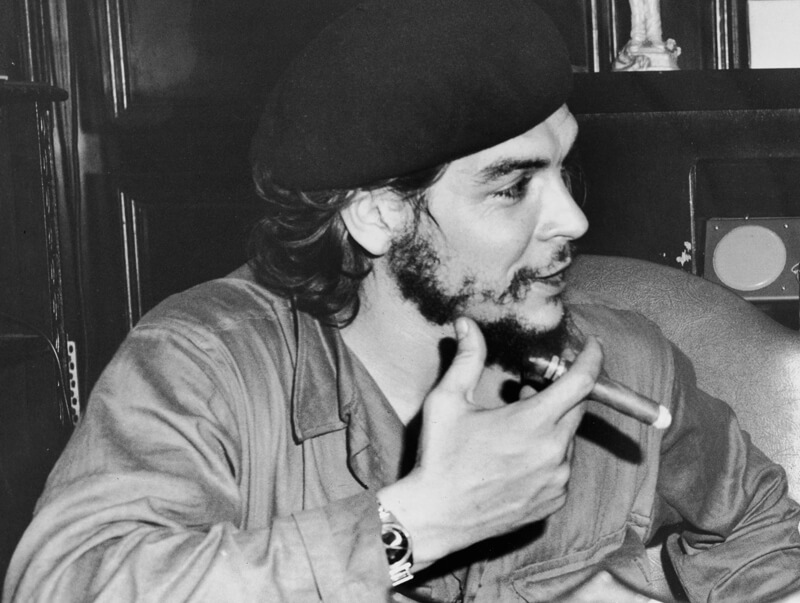
The prosecution also scrutinises Guevara’s unwavering commitment to his radical ideology, suggesting that his steadfast belief in Marxist principles left little room for dissenting voices or alternative viewpoints. They argue that Guevara’s strict adherence to his vision of a socialist society led him to trample on individual freedoms and curtail democratic processes. They contend that a leader who refuses to entertain opposing perspectives and suppresses dissent cannot be considered anything other than a dictator.
To bolster their case, the prosecution presents testimonies from individuals who have directly experienced or witnessed Guevara’s actions. These testimonies recount stories of political opponents being silenced, families torn apart, and a climate of fear and repression. The prosecution aims to establish a pattern of behaviour that points to Guevara’s dictatorial nature, arguing that the ends he sought to achieve do not justify the means employed.
In sum, the prosecution builds a strong case by highlighting Guevara’s involvement in executions, the establishment of labor camps, and the suppression of political opposition. They argue that these actions, combined with his unwavering commitment to a radical ideology, point to a dictatorial nature that undermines the principles of democracy, human rights, and individual freedoms. The prosecution urges the jury to consider the gravity of these charges and their implications for Guevara’s legacy.
Defense's Case - Context and Revolution
The defense’s case presents a nuanced perspective, seeking to contextualise Che Guevara’s actions within the historical circumstances and ideological motivations that shaped his role in the Cuban Revolution. They argue that Guevara’s actions were driven by a sincere commitment to achieving social justice and combating imperialism.
The defence emphasizes that Guevara’s involvement in the Cuban Revolution must be understood within the broader struggle against perceived oppression and inequality. They highlight the dire socioeconomic conditions that existed in pre-revolutionary Cuba, with widespread poverty, corruption, and stark disparities between the wealthy elite and the impoverished majority. The defence argues that Guevara’s actions were a response to these systemic injustices, aiming to rectify the imbalances of power and improve the lives of the marginalised.
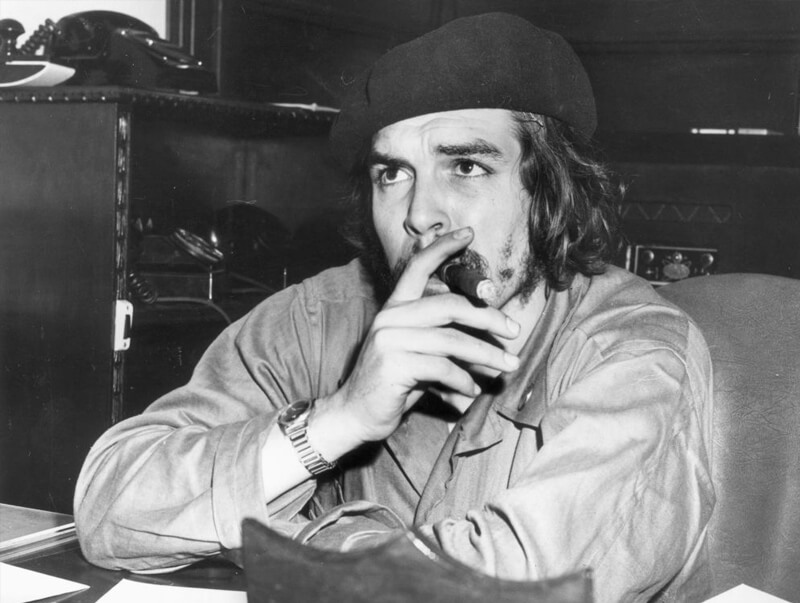
Crucially, the defence highlights Guevara’s efforts in implementing social programs that aimed to uplift the disadvantaged. They underscore Guevara’s pivotal role in literacy campaigns, which significantly improved literacy rates across Cuba, empowering individuals with knowledge and critical thinking skills. Additionally, the defence emphasizes Guevara’s initiatives to provide accessible healthcare to all Cubans, which resulted in a significant reduction in mortality rates and improved healthcare infrastructure.
The defence acknowledges that Guevara’s involvement in executions and the establishment of labor camps raises ethical concerns. However, they argue that these actions must be seen within the unique circumstances of a revolution, where maintaining control and suppressing counter-revolutionary forces was essential to securing the gains made by the Cuban Revolution. The defence contends that Guevara’s actions were a response to the threats posed by internal and external forces seeking to undermine the revolutionary movement.
Furthermore, the defence emphasizes that Guevara’s unwavering commitment to his radical ideology was rooted in a genuine belief in the principles of socialism and a vision of a more equitable society. They argue that Guevara’s actions were driven by a deep concern for the well-being of the Cuban people and a desire to create a society that prioritised collective welfare over individual gain.
To support their case, the defence presents testimonies from individuals who have experienced the positive impact of Guevara’s social programs and his genuine concern for the welfare of the Cuban people. These testimonies shed light on the improvements in education, healthcare, and social equality that were achieved under Guevara’s influence.
In conclusion, the defence presents a multifaceted defence of Che Guevara, contextualising his actions within the historical and ideological motivations that shaped his role in the Cuban Revolution. They argue that Guevara’s commitment to social justice, his efforts in implementing social programs, and the unique challenges of a revolution should be considered in evaluating his actions. The defence urges the jury to weigh these factors when determining whether Guevara’s actions were indicative of a dictator or were a response to extraordinary circumstances in pursuit of a just society.
Deliberations and Jury's Verdict
After careful examination of the evidence presented, the jury must reach a verdict. They consider the conflicting narratives and weigh the circumstances in which Guevara operated. While acknowledging the controversial aspects of his legacy, the jury must also recognise the broader impact of Guevara’s efforts to address social inequality and challenge imperialistic forces.
The jury’s verdict:
After thorough deliberation, the jury finds Ernesto “Che” Guevara not guilty of being a dictator. While recognising the criticisms surrounding his actions, the jury concludes that Guevara’s contributions to the Cuban Revolution were driven by a sincere desire for social justice. The jury acknowledges the complexities of his role and the challenging circumstances of revolution, ultimately viewing Guevara as a figure shaped by his era, rather than a willful oppressor.
The mock trial of Che Guevara provides an opportunity to delve into the conflicting perspectives surrounding his life and actions.
It highlights the intricate nature of historical figures, urging us to examine their legacies through a nuanced lens.
By engaging in critical discourse, we can gain a deeper understanding of the complexities surrounding individuals who have had a profound impact on history.
